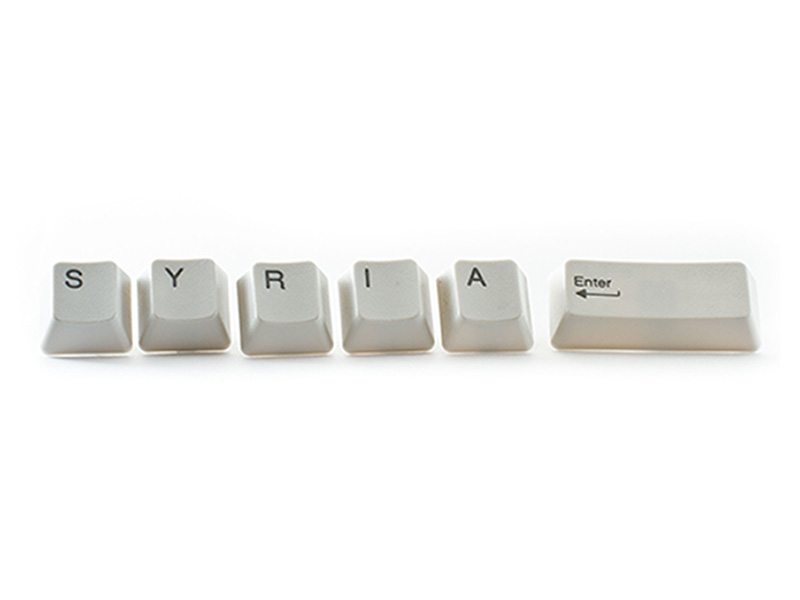
How does the political and cultural shape the linguistic? How does power seep into terminology? What vocabulary is left for a people facing accumulated traumas caused by authoritarian brutality and imperial interventions recently compounded by natural disasters?
This panel focuses on Syria to explore these questions about conducting cultural studies in times of disaster. It brings together the editor of and contributors to the recent special issue in the Middle East Journal of Culture and Communication “Keywords in Contemporary Syrian Media, Culture and Politics.” The panellists will address the place of keywords in their scholarly research and engagement.
Emma Aubin-Boltanski is a social anthropologist and an Arabist. She is a Senior researcher at the National Center for Scientific Research (CNRS), and is currently a member of the Centre for Social Research on Religion (CéSor) at the School for Advanced Studies in the Social Sciences (EHESS), France. Emma is the author of two books: Pèlerinage et nationalisme en Palestine (Ed.de l’EHESS, 2007) and Le corps de la Passion: Expériences religieuses et politiques d’une mystique au Liban (Ed. de l’EHESS, 2018). She is one of the principal investigators of the research programme SHAKK (From revolt to War in Syria: Conflict, displacements, uncertainties), funded by the ANR (2018-2022) where she coordinates the project of a lexicon of the revolution and the war in Syria: https://syria-lexicon.pubpub.org/. Since 2018, she has developed a new body of research on the shifting roles of Syrian women in the context of revolution, war and exile, translating with Nibras Chehayed from Arabic to French a series of testimonies gathered by the Syrian novelist Samar Yazbek, 19 femmes: Les Syriennes racontent (Stock, 2019).
Eylaf Bader Eddin is a post-doctoral researcher at The Prison Narratives of Assad’s Syria: Voices, Texts, Publics (SYRASP) Project (851393) for his research “Musical Remains and Songs in Syrian Prisons and Exile” at the EUME Forum, Transregionale Studien in Berlin. He has studied Arabic, English and comparative literature in Aix-en-Provence, Beirut, Damascus, Marburg and Paris. He was a post-doctoral researcher at Philipps-University Marburg, working on political songs in Syria. His research has been published in Arabic, English and French, including the Arabic book, When They Cried ‘Forever’: the Language of the Syrian Revolution in 2018, upon receiving the Sadiq Jalal al-Azm Award by Etijahat. His forthcoming book on Translating the Language of the Syrian Revolution will soon be released by De Gruyter.
Razan Ghazzawi (they/she) is an exiled Syrian-Palestinian. She has been an award-winning human rights advocate and blogger since 2005. Ghazzawi finished their PhD at the University of Sussex in Brighton and is currently a postdoctoral fellow at EUME, Berlin. Their thesis project is an ethnographical exploration of sexuality politics in the context of the ‘war on terror’ and the ‘refugee crisis’ in Syria and Lebanon by examining checkpoints and arrests as everyday forms of political violence against Syrian and Palestinian LGBTQ activists, artists, migrant workers, students and teachers based in Lebanon. Ghazzawi is a former prisoner of the Syrian state and was exiled by Al-Qaeda and Daesh groups in northern Syria in early 2014.
Omar Al-Ghazzi is an Associate Professor in Media and Communications at LSE. His work focuses on the geopolitics of global communications, particularly in relation to news media and popular culture. He is interested in the political contestation of narratives around digital technologies, as well as of representations of time and memory, focusing on the Middle East and North Africa. He is co-editor of the Middle East Journal of Culture and Communication.
Mai Taha is an Assistant Professor in Human Rights at LSE. Previously she was a Lecturer in Law at Goldsmiths, University of London, and an Assistant Professor in International Human Rights Law and Justice at the American University in Cairo (AUC). Mai has written on international law and empire, human rights, labour movements, class and gender relations, and care work and social reproduction.
Join the conversation on Twitter using #LSEMiddleEast
LSE holds a wide range of events, covering many of the most controversial issues of the day, and speakers at our events may express views that cause offence. The views expressed by speakers at LSE events do not reflect the position or views of The London School of Economics and Political Science.
From time to time there are changes to event details so we strongly recommend checking back on this listing on the day of the event if you plan to attend.